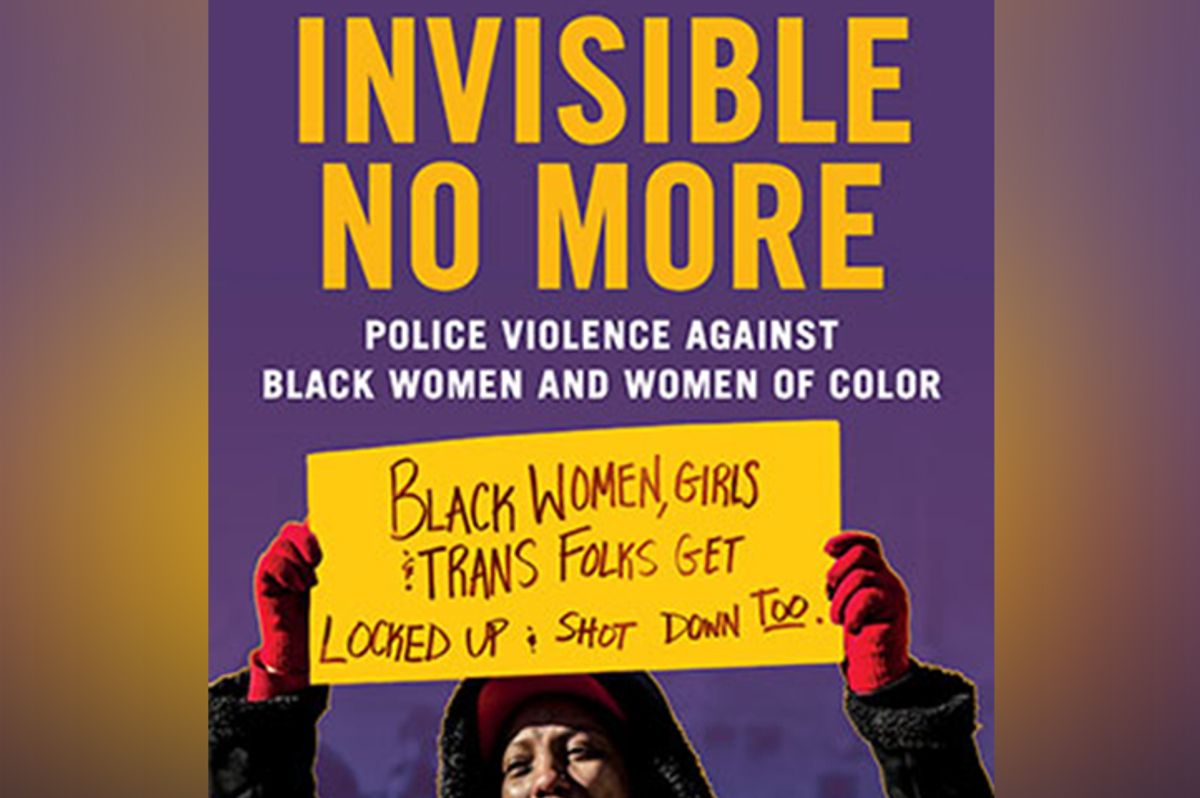Civil rights lawyer Andrea Ritchie’s new book “Invisible No More: Police Violence Against Black Women and Women of Color" doesn’t just address the concerns of cisgender women facing police violence but takes a look at the experiences of trans and gender nonconforming people as well.
Ritchie sat down in Salon's studios recently for a discussion on her research.
How police often take it upon themselves to police gender expression:
I think we tend to acknowledge, very much, the role of police in enforcing the lines of race, often enforcing the lines of class in police poverty. I don’t think we often see the role police play in enforcing the lines of gender, and that has played out historically and continues to play out, and in fact is ramping up under these laws that are being advanced in places like Texas and around the country, in North Carolina originally, around trans and gender-nonconforming folks uses of public spaces like bathrooms.
How police manipulate nuisance ordinances to harass trans and gender nonconforming people:
People don’t think about who’s enforcing those laws. If there’s a moment where someone decides that they have a concern about who might be in a bathroom, the police are the ones who are called. And law or no law, they will use whatever laws are available — disorderly conduct, criminal trespass, making them up. They will make up offenses, literally about being in a bathroom without following whatever non-existent rule might exist.
Police police gender every day, even just in the context of ‘broken windows’ policing, when they decide who feels ‘disorderly’, who looks quote-unquote ‘suspicious.’ They will often read gender nonconformity, particularly in combination with race and poverty, to embody disorder.
How even just hanging out in the park is dangerous for gender nonconforming people:
I talk about a case in the book where literally, it was a gender nonconforming person in a park in Oklahoma City that the police sort of walked up and just wrote them a ticket for disorderly conduct, just for being in the park.
They appealed that, and challenged it and appealed it, and ultimately the court upheld the conviction and said, no, this arrest for disorderly conduct, there was at least probable cause, just based on this person’s appearance and gender nonconforming enjoyment of the park.
Watch the conversation for more on police abuse of transgender and gender nonconforming people.



Shares